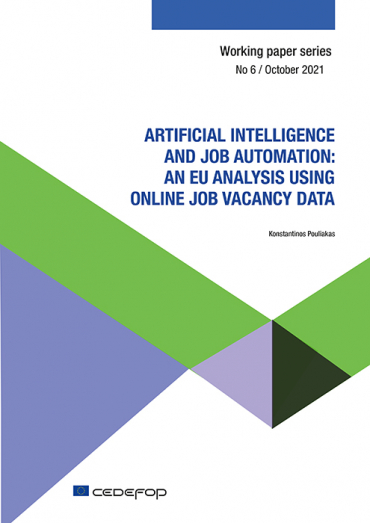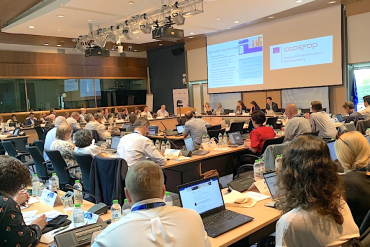The true digital revolution involves occupations outside the information technology (IT) sector, and the pace of digitalisation is fastest in low-skilled jobs.
This is one of the most significant conclusions of recent Cedefop research, as laid out by the Agency’s Executive Director Jürgen Siebel during the meeting of the Directors General for Vocational Education and Training in Mechelen on 18-19 March.
Marking the European Year of Skills with a keynote speech on ‘scoping the long-term impact of the EU’s digital transition’, Mr Siebel noted that Europe had a long way to go when it comes to digitalisation and warned that ‘missing digital skills put in jeopardy not just the digital but also the green transition. Making Europe greener and cleaner is often about identifying digital transformation opportunities and leveraging emerging digital technologies in production, service, and customer processes.’
Pointing out that, nevertheless, digitalisation was rapidly accelerating, as online job ads for technology professionals and technicians had been rapidly increasing since 2018, he stressed that ‘the real digital revolution is outside IT occupations. We see digital intensity rapidly increasing in all sectors of the economy. And, looking at digital skills trends across skills levels, we see that low-skilled jobs are becoming more digitised the fastest.’
AI and blockchain
Referring to the EU’s blockchain strategy, he said that will often mean upskilling people who know some blockchain basics via in-company training.
‘There is a lot of uncertainty about how artificial intelligence (AI) will change the employment and skills landscape, and when we can expect the biggest impacts. But it’s already clear that especially generative AI is rapidly transforming many types of jobs, including high-skilled ones,’ he underlined.
Mr Siebel presented Cedefop’s research plans in the field:
- An AI skills survey among adult workers to understand better how workers skills and job requirements are linked to AI implementation in today’s workplaces and to gain insight into how to provide support to workers, by organisations and via upskilling and re-skilling.
- Reinforcing big data analysis of online job advertisements to monitor closely how the use of AI is intensifying across Europe.
- A further look into the future by use of sectoral foresights.
‘To map the impact of digital transition, all these types of analysis zoom in on sectors, jobs, skills, training or learning. That is very important, but we also need to understand how AI and digitalisation changes EU and national labour markets in a more comprehensive sense. We have used our skill forecast framework to do just that. We have completed a digital transition policy scenario using our skills forecast framework’, Cedefop Executive Director noted, paving the way for Cedefop expert Jasper Van Loo who presented the Agency’s skills forecast methodology as well as the scenarios that were built on recent research concerning the impact of the implementation of the European Green Deal and digitalisation.


